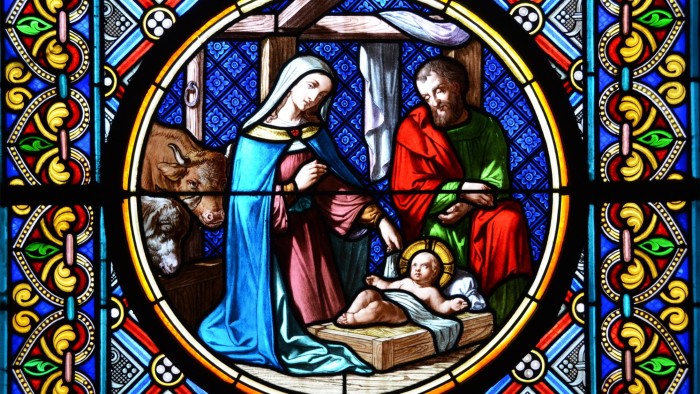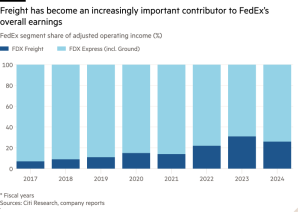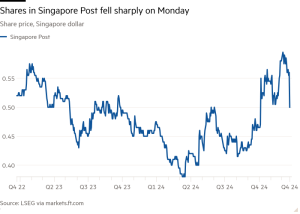This Christmas, humanity needs the audacity of hope

Unlock the Editor’s Digest for free
Roula Khalaf, Editor of the FT, selects her favourite stories in this weekly newsletter.
Tuesday is Christmas Eve: the start of a holiday observed by billions of Christians around the world, as well as by non-believers with a Christian cultural heritage. It commemorates the birth of a baby — the son of God to the devout — in poverty and facing imminent flight forced by threats of brutal violence. In this way the Christmas story locates the divine in humanity’s most vulnerable states.
There is a message in this nativity story whose meaning resonates far beyond Christianity. In his novel The Master and Margarita, Mikhail Bulgakov makes a pompous literary union boss mock the nativity as merely plagiarising earlier myths of gods embodied in human form through virgin birth. Yet rather than diminishing the story’s relevance, his observation only highlights how it reflects something universally human.
That universal humanity is the marvel and hopefulness every birth of a child has a way of instilling, even in the most dire circumstances. Nativity itself is the one thing all humans share, along with mortality. And if mortality is the merciless closing off of opportunities, the birth of new life is the very definition of potentiality, of promise, and of possible futures.
In particular, new life bears in it the possibility that the future will be better than the past or the present. The hope that nativity kindles in all of us is the knowledge that humanity is not doomed to keep failing, that the world can change and be improved, that any individual may one day act to relieve loss and suffering.
This is the core of the Christmas story in all its versions, from the gospels to Dickens’ A Christmas Carol to any number of cheesy Christmas movies. Call it kitsch or call it sentimentality, by all means. But don’t make the mistake of thinking it cheap. This hope is the most valuable we have.
The hopefulness of the nativity is the same as the hope raised by other new beginnings. It is why we are moved by the possibilities that open up when an unfree people finds its freedom — as we have seen recently in places including Bangladesh and Syria — or when invention and technological breakthroughs, such as this year’s rollout of malaria vaccines, make the impossible possible.
The meaning of nativity is the meaning of light in the darkness. Not for nothing did Christianity adopt earlier traditions to mark the darkest nights of the northern hemisphere’s year, the moment when brighter times begin to return.
This year Christmas coincides with Hanukkah. That holiday, too, celebrates light in darkness. Rabbi Hugo Gryn has told of how his father lit a secret menorah candle in the barracks of Auschwitz, made out of metal scraps and using secreted butter for the oil. Berated by his son for wasting precious food that might otherwise prolong life, Gryn’s father replied that a person can live for a while without food — but not a single day without hope.
Such hope is desperately needed today — by all of us after these past few years of crisis, epidemics, and wars, but above all by those trapped in unjust imprisonment, abuse and bombardment, including in the region of the biblical nativity itself.
There may seem scant place for hope in situations today, such as the conflicts in Gaza, Sudan and elsewhere, where even the birth of a child brings the danger of present tragedy rather than the promise of future flourishing. And yet there is no alternative. May this holiday period strengthen hope for those who most need it, against the odds and regardless of creed. It is the task and responsibility of all of us to do what we can to justify it.
#Christmas #humanity #audacity #hope




